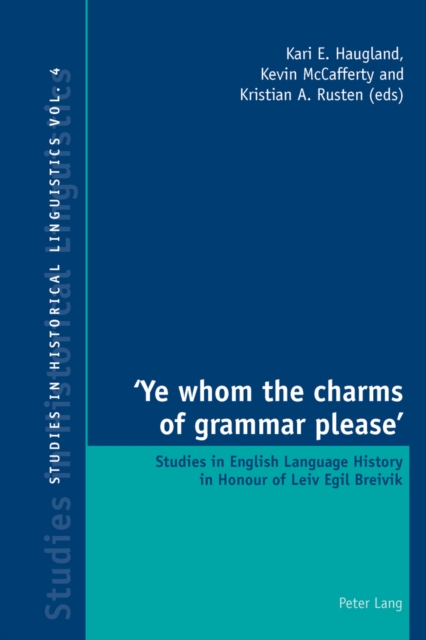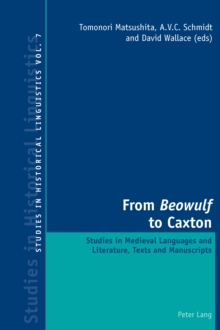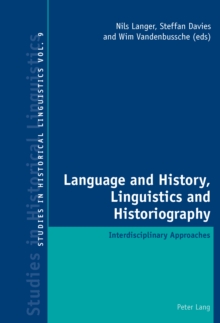
‘Ye whom the charms of grammar please’ : Studies in English Language History in Honour of Leiv Egil Breivik Paperback / softback
Edited by Kari Haugland, Kevin McCafferty, Kristian A. Rusten
Part of the Studies in Historical Linguistics series
Paperback / softback
Description
This collection of articles by colleagues and students of Leiv Egil Breivik presents studies within both core and peripheral areas of English historical linguistics.
Core topics covered include the development of existential there and related phenomena, word order, the evolution of adverbials, null subjects from Old to Early Modern English, pragmatics and information structure and aspects of discourse.
Contributors also address the emergence of new syntactic constructions in the past and present, language contact and aspects of style in Early Modern English letters and medical texts.
The ideological discourses of children’s dictionaries and medieval letters of defence are also explored. The essays are all empirical studies, based on a wide range of corpora (both historical and contemporary) and applying theoretical approaches informed by Systemic-Functional Grammar, grammaticalization theory, dependency grammar, historical linguistics, sociolinguistics and corpus linguistic methods.
Issues of methodology, statistics and corpus construction and annotation are also addressed in several contributions.
Information
-
Out of Stock - We are unable to provide an estimated availability date for this product
- Format:Paperback / softback
- Pages:416 pages
- Publisher:Peter Lang AG, Internationaler Verlag der Wissensc
- Publication Date:23/04/2014
- Category:
- ISBN:9783034317795
Information
-
Out of Stock - We are unable to provide an estimated availability date for this product
- Format:Paperback / softback
- Pages:416 pages
- Publisher:Peter Lang AG, Internationaler Verlag der Wissensc
- Publication Date:23/04/2014
- Category:
- ISBN:9783034317795










